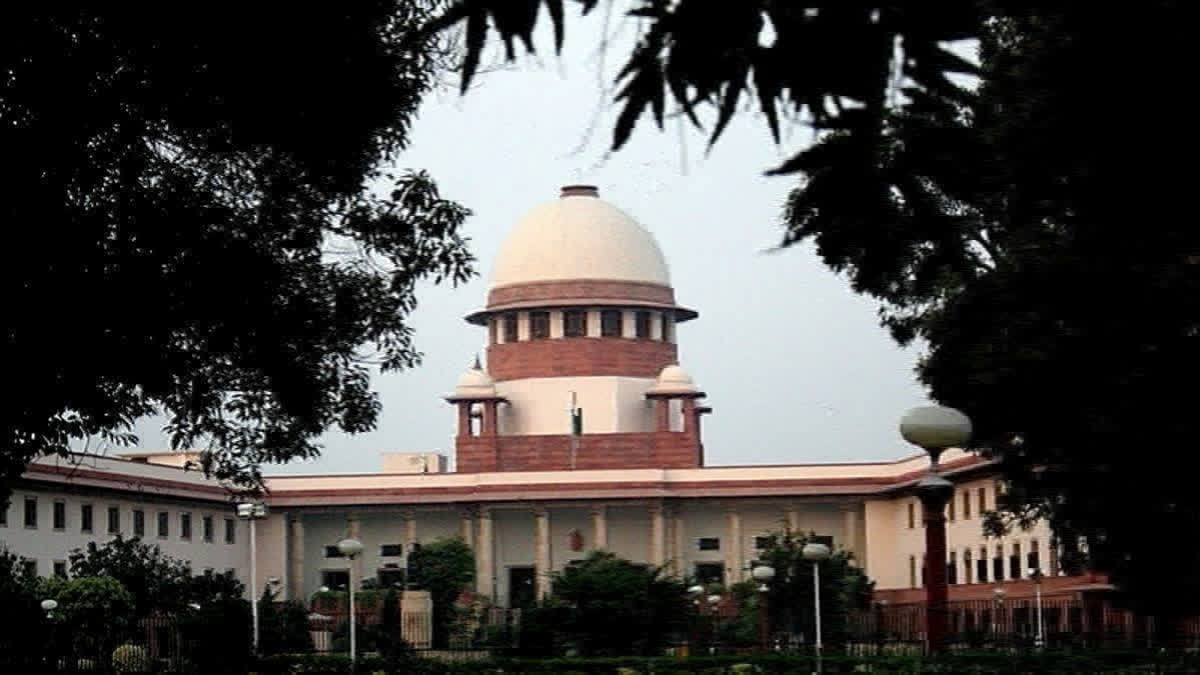New Delhi: Solicitor General Tushar Mehta on Monday contended before the Supreme Court that he was shocked to learn that products, other than meat-based, which are sought to be sold as halal-certified, saying “I was shocked yesterday, even cement used is to be halal-certified! Sariyas (iron bars) used have to be halal-certified...Water bottles which we get are required to be halal-certified….”. Mehta asked why should non-believers be made to pay higher cost for halal-certified products.
The matter came up before a bench comprising justices BR Gavai and AG Masih. The apex court was hearing the pleas challenging a notification prohibiting the manufacturing, storage, sale and distribution of food products with halal certification within UP, except for items produced for export. Mehta submitted that so far as halal meat is concerned, nobody can have any objection. “But your lordships would be shocked, as I was shocked, that even cement and iron bars used are to be halal certified….”, said Mehta.
Mehta emphasized that halal-certifying agencies were charging and the total amount collected in the process might be a few lakh crore. “Even 'atta' (wheat flour) and 'besan' (gram flour) has to be halal-certified. How can 'besan' be halal or non-halal?”, asked Mehta. A counsel, representing the petitioners’, said the Centre's policy says it was a matter of lifestyle, and added, “all this is voluntary. Nobody is forcing anyone….”.
Citing non-believers, who did not consume halal-certified products, Mehta asked why they should be made to pay a higher price only because some people wanted halal-certified products. After hearing submissions, the apex court granted four weeks to the petitioners' to file a rejoinder and listed the matter for hearing in the week commencing March 24.
The Uttar Pradesh government, in a written response, said that in the course of investigation, notices were sent to all the named accused Halal institutions namely: a. Halal India Private Limited, Chennai, b. Jamiat Ulema Hind Halal Trust Delhi, c. Halal Council of India, Mumbai, and d. Jamiat Ulema Maharashtra Mumbai.
The Uttar Pradesh government, in the counter affidavit, said as per the statements received, the process of issuing halal certificates was described as voluntary, and according to them, when someone needs a halal certificate, the said person would go to the accused institutions and obtain the halal certificate.
“However, in none of the responses provided could any of the accused institutions demonstrate the lawful authority under which such certifications were being provided by the accused person. As such, it is the admitted position on behalf of the accused persons that the said certifications were being provided without authority of law”, said the UP’s affidavit.
The state government said the investigation has revealed that the accused institutions, without any authority of law, and while holding out the representation to the general public, that the certifications issued by these institutions are under lawful authority, have been issuing halal certificates throughout India for the last several years and are charging huge amounts from different companies for this.
The affidavit said it is necessary to point out that during investigation it has been unearthed that the certifications being issued by the accused organizations are being issued without any authority of law and any scientific testing. The affidavit said the 'halal' certification of food products as a parallel system that creates confusion regarding the quality of food items and is completely against the basic intention of the Food Safety and Standards Act.
The state government said that issuing such unauthorized certification on food items falls under the ambit of deceiving the general public about their production and unfairly influencing a religious community for that product and reducing the sales of the companies which have not obtained such Halal certificate from them.
“Thus, a criminal act is being committed by the Petitioner which is not only fostering social animosity but also violating the public trust and hence, an investigation is required to unearth the intention of the Petitioner and the effect of the act itself”, said the affidavit. The November 18, 2023 notification was issued by the office of the commissioner, Food Safety and Drug Administration, Uttar Pradesh, under the provision of the Food Safety and Standards Act, 2006.
The Centre, in a counter affidavit, said the petitioners’ grievance related to the November 18, 2023 notification issued by the Food Safety and Drug Administration of Uttar Pradesh, which fell entirely under the jurisdiction and authority of the state. The affidavit said the Centre's Ministry of Commerce and Industry had no role or authority over such state-level regulations or notifications and an FIR was registered against one of the petitioners at Lucknow in a case related to Halal certification.
The Centre made it clear that the ministry was primarily concerned with the promotion and regulation of international and domestic trade, industrial growth, and export promotion in India. In 2024, the apex court sought a response from the UP government and others on separate pleas challenging the notification prohibiting the manufacturing, storage, sale and distribution of food products with halal certification within Uttar Pradesh, except for items produced for export.
The petitioners’ counsel had said an FIR was lodged in UP against one of the petitioners and other entities alleging they were issuing forged halal certificates for financial gains. Halal India Private Limited, Jamiat Ulama-I-Hind Halal Trust, and others had moved the apex court. Last year, the apex court had directed no coercive steps would be taken against the trust and its office bearers in connection with the FIR lodged in Lucknow over Halal certification.



